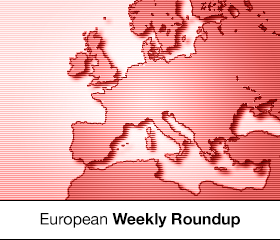News Corp Funding for AppNexus; AppLovin Sold to Chinese Investors
by Sonja Kroll on 30th Sep 2016 in News


ExchangeWire round up some of the biggest stories in the European digital advertising space. In this week’s edition: AppNexus gets funded by News Corp. and supports LinkedIn ads; AppLovin sold to Chinese investors; Google updates ad products; No data exchange between Facebook and WhatsApp in Germany; Adform and Tipico partner; and Visual IQ receives data from Facebook's Atlas.
AppNexus supports ads on LinkedIn & gets funding
Two big pieces of news from AppNexus. After recently announcing that LinkedIn’s ad network is being retired, the career network now turns to AppNexus to sell display ads – an unsurprising move, considering that AppNexus have been involved in setting up LinkedIn’s ad network in the first place.
Advertisers can go through AppNexus’ open and private auction solutions to target LinkedIn's audience of more than 450 million professionals.
Better still, the ad tech company have just secured more funding. An investment round is pouring USD$31m (£24m) into the coffers of AppNexus. Roughly a third of the funding comes from News Corp. As part of the partnership with News Corp, AppNexus' suite of technology products are being made available to News Corp's businesses.
"Today’s announcement of News Corp’s investment in AppNexus signals a long-term partnership with one of the world’s most formidable media organisations to innovate and build technology to power digital audience platforms across the open internet”, says Nigel Gilbert, VP strategic development, AppNexus. “This is a fantastic opportunity for News Corp’s properties and programmatic buyers on our platform to leverage data and machine learning to better acquire, engage, and monetise their audiences and create a better, more personalised internet for end consumers”
Simultaneously, the investment also augments AppNexus' existing relationship with video ad tech company Unruly, acquired by News Corp in September 2015. The new partnership brings buyers and sellers of inventory together via AppNexus' video buying platform and Unruly's viewable video SSP.
Huge price tag for AppLovin
Since appearing on the scene with their own SDK five years ago, the San Francisco-based app ad network AppLovin has become widely used, particularly in the gaming sector. Now the founders are reaping the rewards in a massive sale, worth USD$1.42bn (£1.1bn).
The new owner of AppLovin is the Chinese private equity company Orient Hontai Capital. No surprise: according to AppLovin, most of their two billion users are based in the US and in China, so Orient Hontai is investing in their own market, despite the high price.
“While this deal is a tremendous validation of the outstanding product we’ve built, it’s also particularly remarkable because it’s the most sizeable outcome for a mobile advertising company ever”, says AppLovin co-founder Adam Foroughi in the company blog.
AppLovin will continue to operate from their corporate headquarters in Palo Alto, California, and retain their global team.
Google update ad products
Google go with the times: coming soon, the online giant is planning to expand Brand Lift from measuring online video to include TV.
Moreover, Google is introducing location extensions and store visits measurement for the Google Display Network, letting businesses add Google Maps data and photos to their ads.
And, finally, Google lets go of cookies to track users. Instead, cross-device remarketing for Google Display Network and DoubleClick Bid Manager via logged-in data is supposed to help marketers reach the same user across devices, apps, and sites.
With the changes, Google take a leaf out of Facebook’s book: Facebook’s Custom Audiences and ad network rely heavily on data of logged-in users – an approach that has proven successful. Despite the failure of their own social network, Google still have plenty of such data via services such as Youtube, Maps, or Android.
German authorities ban Facebook data exchange
No data exchange between Facebook and WhatsApp in Germany: the Hamburg data protection officer Johannes Caspar prohibits the exchange of data between the two apps, effective immediately.
According to a press release by the data protection authority, Facebook have to stop using data generated by their messaging daughter, WhatsApp.
"Facebook and WhatsApp are independent companies that process the data of their respective users based on their own terms of use and privacy policy. After the acquisition of WhatsApp by Facebook two years ago, they publicly promised that their users' data can not be exchanged between the two companies. The fact that this is now happening is not only misleading the users and the public, but also represents a breach of national data protection law."
At the end of August 2016, it was revealed that WhatsApp were going to share user data with Facebook, authorised by simply changing the conditions of use at Facebook. When Facebook acquired WhatsApp in 2014, the merger was approved by EU authorities only on the condition that both companies would continue to operate separately.
The Hamburg data protection authority is responsible for Facebook because the company’s German headquarters are located in Hamburg.
Adform powers Tipico ads
Tipico invest in adtech: the sports betting provider partners with adtech specialist Adform, supporting Tipico’s internal programmatic advertising strategy.
In an exclusive partnership, Adform powers ad serving as well as campaign reporting and campaign analysis for Tipico.
According to Adform, the ad server will centrally deliver all digital campaigns of Tipico in a bid to increase the efficiency and transparency of the internal processes. Moreover, programmatic digital, video, and mobile campaigns can be personalised and optimised.
Martin Stockfleth Larsen, CMO, Adform, adds: “Tipico are ahead of the curve with their implementation of a flexible and integrated ad server. They are aware of the benefits of relevant, personalised advertising and content and are addressing this head on. The team at Tipico really understand the opportunities and benefits of an in-house ad technology solution. We are proud to be Tipico’s partner and are excited to see where their data-driven marketing strategy will take them.”
Sourcepoint overcomes ad blocking
Ben Barokas’ newest start-up, Sourcepoint, comes with a grandiose promise: the so-called 'Content Compensation Platform' has just launched its 'Dialogue' module. Behind the module are capabilities that will enable publishers to communicate with audiences about compensation choice – and, thus, eliminate the use of ad-blocking software.
Publishers that use Dialogue can develop audience segments, create targeted messaging strategies to understand users’ content compensation preferences, and then execute campaigns leveraging that data.
The solution allows 'content locking', i.e. publishers can withhold content from users who use ad-block software. Or, in a softer approach, Dialogue provides options for consumers to whitelist or to opt-in to ad supported experiences.
“We believe that ad block usage is a symptom that comes from the lack of clarity around the value exchange in the digital content ecosystem”, says Ben Barokas, founder & CEO at Sourcepoint. “Finding the right balance that works for both users and publishers is critical. As an industry, we must find the right mix of actions and offerings to align consumer preference with a sustainable way to fund content development to safeguard the internet, as we know it.”
Visual IQ Facebook Atlas partnership
Thanks to a new partnership, attribution platform provider Visual IQ receive data from Facebook's ad server Atlas in a bid to give Visual IQ customers a better idea of the mutual influence of their cross-channel media expenses.
With the help of Atlas’ demographic data, Visual IQ wants to help their customers make better decisions on campaign optimisation for their mobile advertising channels. To that end, Atlas is apparently sharing socio-demographic data (age, gender) from campaigns both based on web browsers (mobile websites) as well as in mobile apps.
"Facebook knows people, and this partnership gives us the ability to help our customers understand the effectiveness of their cross-device campaigns in a way that was never before possible," says Manu Mathew, CEO and co-founder, Visual IQ.
The new integration also ensures that data from Facebook campaigns, including desktop, mobile internet and mobile app, as well as from Facebook apps such as Instagram, will be considered by the attribution process facilitated by Visual IQ. This allows advertisers to better understand how their Facebook ads affect their other media, and vice versa.
Ad BlockingAd NetworkAnalyticsattributionCross-ChannelCross-DeviceDACHDataDigital MarketingDisplayDMPEMEAExchangeFacebookMartechMeasurementMedia SpendMobileProgrammaticPublisherRegulationSocial MediaTargetingTradingTransparencyTVVideo








Follow ExchangeWire